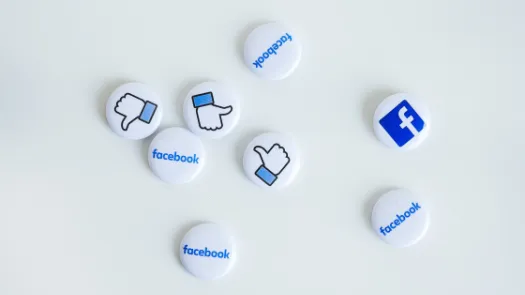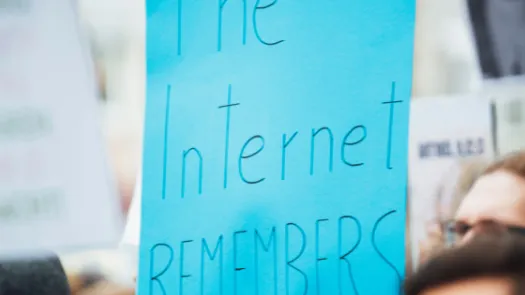Case Study: Profiling and Elections - How Political Campaigns Know Our Deepest Secrets

Political campaigns around the world have turned into sophisticated data operations. In the US, Evangelical Christians candidates reach out to unregistered Christians and use a scoring system to predict how seriously millions these of voters take their faith. As early as 2008, the Obama campaign conducted a data operation which assigned every voter in the US a pair of scores that predicted how likely they would cast a ballot, and whether or not they supported him. The campaign was so confident in its predictions that Obama consultant Ken Strasma was quoted boasting that: “[w]e knew who … people were going to vote for before they decided.” Has voter targeting gone too far?
What happened
Political campaigns rely on data to facilitate a number of decisions: where to hold rallies, which states or constituencies to focus resources on, and how to personalise communication and advertisement with supporters, undecided voters, and non-supporters.
Data-driven campaigning is nothing new. For decades, campaigns have been using and refining targeting, looking at past voting histories, religious affiliation, demographics, magazine subscriptions, and buying habits to understand which issues and values are driving which voters.
What is new, however, is the granularity of data that is available to campaigns. The US Republican National Committee, for instance, provides all Republican candidates up down the ballot with free access to “Data Center”, a query and data management tool that interfaces with more than 300 terabyte of data on 200 million voters, including 7,700,545,385 microtargeting data points. Similarly, the data analytics company and voter contact platform i360, which is financed by the Koch brothers, and maintains a database of over 250 million US citizens and voters, containing thousands of pieces of information that provide “the full picture of who they are, where they live, what they do and what is happening around them”. Together with millions of email addresses, phone numbers, and other personal data such as data gathered through donations, at rallies, and though merchandise, political campaigns have come to know our deepest secret.
It is in this context that Cambridge Analytica, the UK-based data analytics firm, has exploded onto the scene in 2016, following revelations that it might have played a role in both the US election and the UK Brexit referendum. The company claims to possess 5,000 data points on 220 million Americans, made up of psychological data culled from Facebook paired with vast amounts of consumer information purchased from data-mining companies.
Data brokers and other data mining companies all collect or obtain data about individuals (your browsing history, your location data, who your friends are, or how frequently you charge your battery etc.), and then use these data to infer additional, unknown information about you (what you’re going to buy next, your likelihood of being female, the chances that you are conservative, your current emotional state, how reliable you are, or whether you are heterosexual etc.).
Voter tracking also doesn’t end online. Shortly after the Iowa caucus in early 2016, the CEO of Dstillery, a “big data intelligence company”, told the public radio program Marketplace that the company had tracked 16,000 caucus-goes via their phones and matched them with their online profiles. Dstillery was able to identify curious behavioural patterns, such as people who loved to grill or work on their lawns overwhelmingly voted for Trump in Iowa.
Essentially, companies like Cambridge Analytica and i360 do two things: gather massive amounts of data about individuals, use these data to profile and predict even more intimate details about individuals, and use these profiles and predictions to personalise political messaging, such as ads on social media, and to inform strategic campaign decisions.
At a time when political campaigns can harvest troves of data, the media landscape itself is undergoing a radical transformation. Even though television, newspapers, and radio still play an important role, more and more people are getting their news and learn about political candidates through social networks. More importantly, these networks give us a sense of what others might think about issues and candidates.
Social media sites go at length to paint themselves as neutral platforms that are decidedly different from traditional media that sets agendas and makes the news, yet they inevitably come with their own biases. These often highly personalised spaces that are optimised for engagement and build around advertising. From newsfeed algorithms to content moderation, social media sites shape what kind of content we see and how frequently we are exposed to information or people we disagree with.
In the midst of this changing environment, political campaigns are microtargeting voters – whether through ads online, or in personalised phone calls and visits - to change their behaviour. How people feel about a political candidate, who they ultimately vote for, and whether they decide to vote at all, is shaped by a number of factors. Research has shown that even the weather can affect voting behaviour. However, our most conscious decisions are routinely influenced by unconscious thought-processes, emotions, and prejudices. This is precisely why commercial and political public relations efforts are so focused on creating ever more intimate profiles about us. Take it from the Director of YouTube Advertiser Marketing at Google: “voter decisions used to be made in living rooms, in front of televisions. Today, they’re increasingly made in micro-moments, on mobile devices. Election micro-moments happen when voters turn to a device to learn about a candidate, event, or issue”.
What’s the problem?
The way in which data is used in elections and political campaigns is highly privacy invasive, raises important security questions, and has the potential to undermine faith in the democratic process.
Campaigns frequently rely on data that individuals might not have consented to disclosing in the first place. Large voter databases also frequently rely on commercially available data from data brokers, or publicly available records and data that is accessible online to build highly intimate profiles. This is especially concerning when sensitive information, such as political beliefs or personality traits are inferred from completely unrelated data using profiling. Personality traits, for instance, can be predicted from likes on social media. The fact that commercial data, public records, and all sorts of derived information are used for political campaigning would come as a surprise to most people.
There is also a security component to the amassing of sensitive data. Databases that are compiled for strategic political communication often contain highly sensitive information. Such databases frequently get hacked, leaked, stolen, or simply shared, as the 2017 accidental exposure of a database holding personal data on almost 200 million US citizens demonstrates. Data security is further threatened by the fact that databases are frequently shared, once a candidate drops out, or when the election is over. Nearly every single 2016 US presidential candidate has either sold, rented, or loaned their supporters’ personal information to other candidates, marketing companies, charities, or private firms.
Voter profiling also raises more fundamental issues. The use of data in elections is merely the tip of the iceberg in an economy where consumers are increasingly becoming the product, not the consumer. The entire (online) advertising ecosystem is organised around real-time flow of data about peoples’ lives and has been built to modify people’s behaviour for profit. Companies that have accumulated years of sensitive data on billions of people around the world may be able to change people’s actual behaviour at scale.
What’s is the solution?
We are moving towards a world where your hairbrush has a microphone and your toaster a camera; where the spaces we move in are equipped with sensors and actuators that make decisions about is in real-time. All of these devices will generate, collect, and share massive amounts of personal data that will be used to make sensitive judgements about who we are and what we are going to do next.
Voter profiling thrives on under-regulated access to massive amounts of highly personal data – not just by political campaigns. People should be in charge of what is happening to their data, who can use it, and for what purposes. Further, campaign and elections regulations should not just consider how much money private individuals can donate, but also look at data as a new source of power.
Where data is generated, individuals should be able to find out which organisations hold what kinds of data about them. Profiling generates highly sensitive inferences and predictions about people’s personality, behaviour or beliefs. Individuals should be able to access these inferences and predictions about them.
Finally, voter databases must be stored securely.



